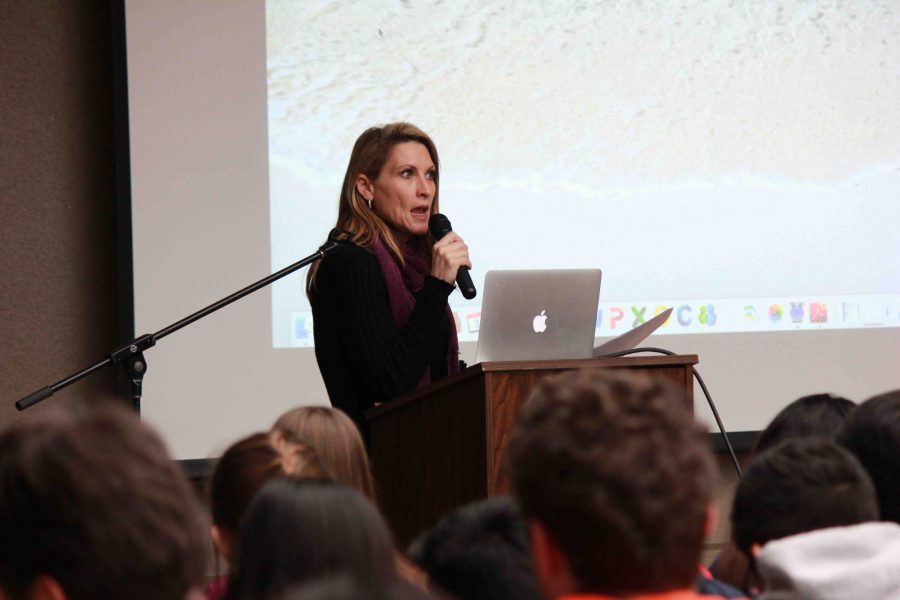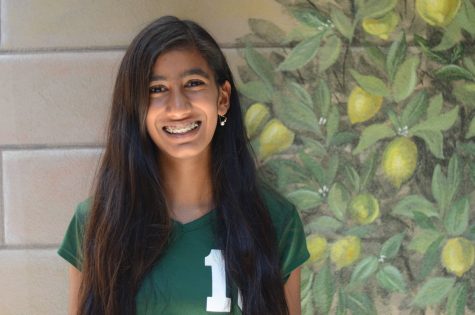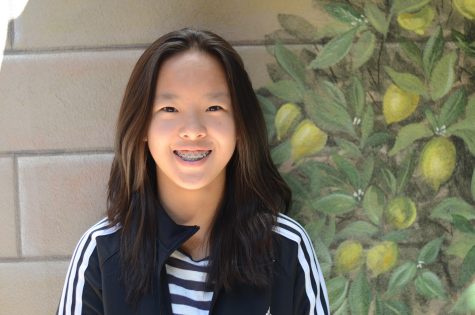Speaker discusses personal boundaries at school assembly
Dr. Tonja Krautter, a clinical psychologist, spoke at the upper school in two assemblies, one for underclassmen and the other for upperclassmen, about setting personal boundaries in relationships.
February 3, 2017
On Friday, Dr. Tonja Krautter, a clinical psychologist, spoke at the upper school in two assemblies, one for underclassmen and the other for upperclassmen, about setting personal boundaries in relationships.
During her presentation, Dr. Krautter discussed with students how they should verbally set boundaries with others and described grey area situations as times when it is more difficult to see if a line is being crossed. Additionally, she showed students videos on how an abusive relationship may start and how boundary lines can be blurred.
“I think [this assembly is] extremely important because kids need to know if a boundary has been breached or crossed, and they need to know who they can talk to and where they can go for some help,” Dr. Krautter said. “If a boundary is being crossed, it is so important to speak up and speak out about it and know what it means to have a boundary be crossed because sometimes there are these grey areas. Consent is super important and no means no.”
The lecture presented many situations involving complex relationships often in moral grey areas and covered topics such as victim-blaming, no means no and the legal ramifications for many of the less known relation. Two YouTube videos, the first depicting a boyfriend pressuring a girlfriend for sex and the second depicting the investigation of a girls basketball coach’s misconduct.
Many of the students felt that the assembly brought important information to light.
“I liked it. I thought it was pretty useful. I think that it is something that definitely needs to be addressed,” Jasmine Wiese (9) said. “I think [students] need to know when something is legal, when something is not legal, and even if they think they know, I think this is good assembly to clarify what’s okay, what’s not okay, to tell us ‘You need to set boundaries,’ and make us aware of what is going on in our personal lives and how we can deal with that and overcome it.”


















![“[Building nerf blasters] became this outlet of creativity for me that hasn't been matched by anything else. The process [of] making a build complete to your desire is such a painstakingly difficult process, but I've had to learn from [the skills needed from] soldering to proper painting. There's so many different options for everything, if you think about it, it exists. The best part is [that] if it doesn't exist, you can build it yourself," Ishaan Parate said.](https://harkeraquila.com/wp-content/uploads/2022/08/DSC_8149-900x604.jpg)




![“When I came into high school, I was ready to be a follower. But DECA was a game changer for me. It helped me overcome my fear of public speaking, and it's played such a major role in who I've become today. To be able to successfully lead a chapter of 150 students, an officer team and be one of the upperclassmen I once really admired is something I'm [really] proud of,” Anvitha Tummala ('21) said.](https://harkeraquila.com/wp-content/uploads/2021/07/Screen-Shot-2021-07-25-at-9.50.05-AM-900x594.png)







![“I think getting up in the morning and having a sense of purpose [is exciting]. I think without a certain amount of drive, life is kind of obsolete and mundane, and I think having that every single day is what makes each day unique and kind of makes life exciting,” Neymika Jain (12) said.](https://harkeraquila.com/wp-content/uploads/2017/06/Screen-Shot-2017-06-03-at-4.54.16-PM.png)








![“My slogan is ‘slow feet, don’t eat, and I’m hungry.’ You need to run fast to get where you are–you aren't going to get those championships if you aren't fast,” Angel Cervantes (12) said. “I want to do well in school on my tests and in track and win championships for my team. I live by that, [and] I can do that anywhere: in the classroom or on the field.”](https://harkeraquila.com/wp-content/uploads/2018/06/DSC5146-900x601.jpg)
![“[Volleyball has] taught me how to fall correctly, and another thing it taught is that you don’t have to be the best at something to be good at it. If you just hit the ball in a smart way, then it still scores points and you’re good at it. You could be a background player and still make a much bigger impact on the team than you would think,” Anya Gert (’20) said.](https://harkeraquila.com/wp-content/uploads/2020/06/AnnaGert_JinTuan_HoHPhotoEdited-600x900.jpeg)

![“I'm not nearly there yet, but [my confidence has] definitely been getting better since I was pretty shy and timid coming into Harker my freshman year. I know that there's a lot of people that are really confident in what they do, and I really admire them. Everyone's so driven and that has really pushed me to kind of try to find my own place in high school and be more confident,” Alyssa Huang (’20) said.](https://harkeraquila.com/wp-content/uploads/2020/06/AlyssaHuang_EmilyChen_HoHPhoto-900x749.jpeg)








